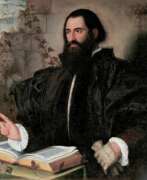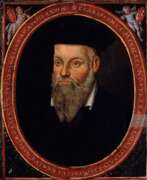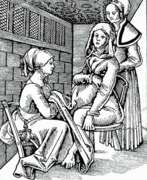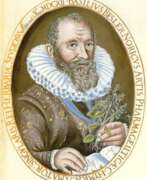Pharmacists 16th century


Pietro Andrea Gregorio Mattioli was a 16th-century Italian physician, botanist and pharmacist.
Mattioli studied medicine in Padua and obtained a medical practice first in his hometown. Later, in the 1555-1560s, he served as personal physician to the imperial court of Ferdinand II, Archduke of Austria, and Emperor Maximilian II. This high position allowed him to test the effects of poisonous plants on prisoners for scientific purposes.
Mattioli published several scientific works in which he included many of his own observations on the flora of the Alps, including previously unexplored plants. These works, based on the study of books by predecessor scientists, gave impetus to the development of botany throughout Italy at the time. Mattioli kept up a lively correspondence with other researchers, describing specimens of rare plants received from them. The genus of flowering plants Matthiola is named after Mattioli.


Nostradamus (French: Michel de Nostredame) was a French physician-pharmacist, writer, poet, astrologer and alchemist.
Nostradamus was born into a family of baptized Jews and studied various sciences in Avignon. At that time the plague was rampant in Europe, and Nostradamus decided to become a healer, in 1526 he even invented an anti-plague medicine, and later received a degree of Doctor of Medicine. He began his medical practice around the 1530s in Agen. During the plague outbreaks in Aix and Lyon in 1546-1547, he gained fame for his innovative treatments. Nostradamus described his methods of dealing with epidemics in several medical works. In addition to medicine, he also practiced astrology.
Nostradamus gained worldwide fame thanks to his gift as a seer. He began making prophecies around 1547 and first published them in 1555 in a book called Centuries. The book was written in rhymed quatrains - catrines - with predictions of future events in European history. Some of his prophecies were close to the truth, and the fame of the visionary Nostradamus reached the court of Catherine de Medici, who ordered him to compile horoscopes of her children. In 1564 he was appointed physician to Charles IX, to whom he also made several predictions that came true.
Nostradamus's book of prophecies was a huge success, and it still arouses interest, but he wrote allegorically and many of the katrines cannot be interpreted unambiguously.


Eucharius Rösslin the Elder or Eucharius Rößlin was a German medieval scholar, physician-midwife, and pharmacist.
In 1493 Eucharius became apothecary in Freiburg, and 13 years later was elected physician of the city of Frankfurt am Main. From there he moved to Worms, in the service of Katherine, Princess of Saxony and Duchess of Brunswick and Lüneburg. One of his duties was to oversee and supervise the city's midwives, whose ignorance led to a high infant and female mortality rate.
In order to remedy this, Eucharius wrote and published a book on midwifery called Der Rosengarten ("The Rose Garden for Pregnant Women and Midwives") in Strasbourg in 1513. It was in German and contained several engravings. The book proved very popular and soon became the standard medical textbook for midwives. For nearly two centuries it was the authoritative guide to midwifery in Europe, translated into seven languages and reprinted over a hundred times.
In 1517 Rösslin returned to work in Frankfurt and remained in that position until his death in 1526. His son, also named Eucharius Rösslin, succeeded him as city physician.

